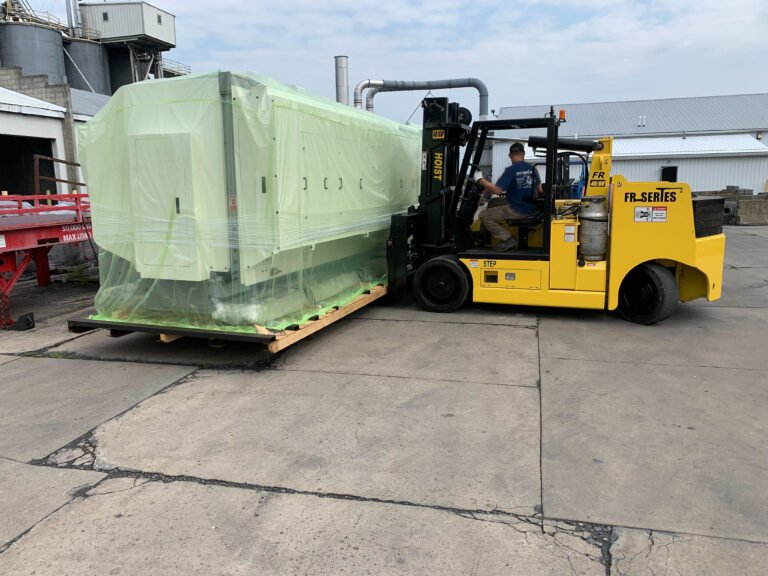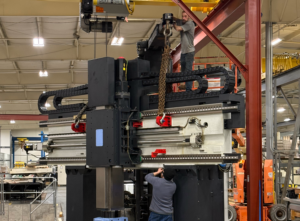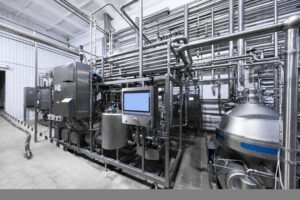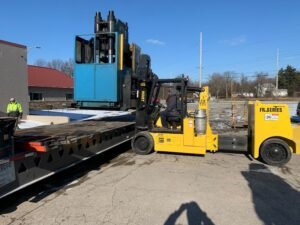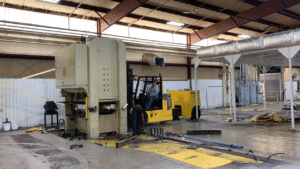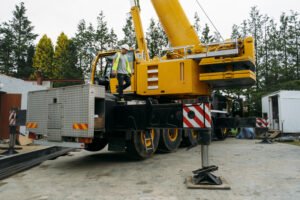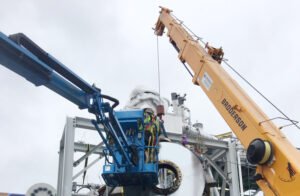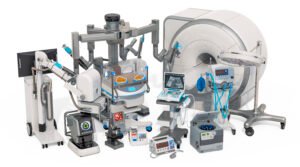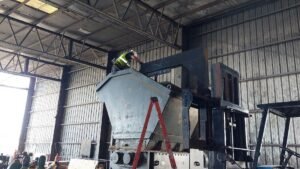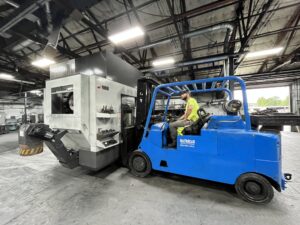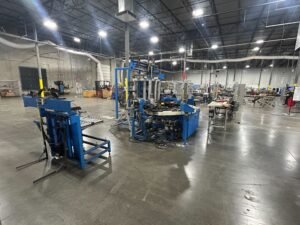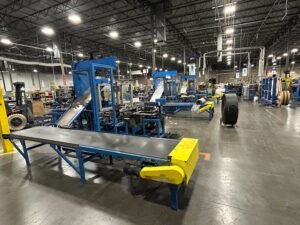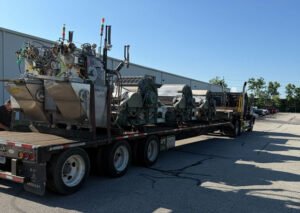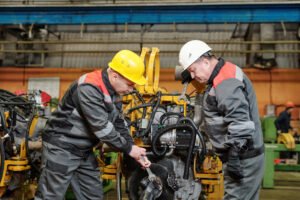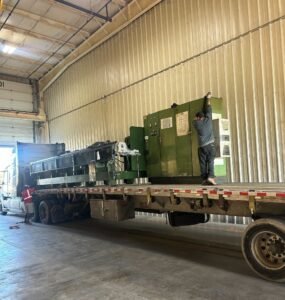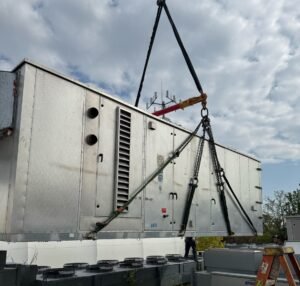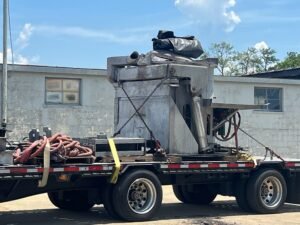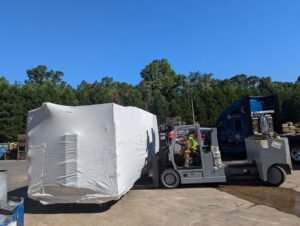Moving heavy equipment is no small task. Whether it’s for a factory relocation, construction site delivery, or transporting oversized machinery across state lines, hiring a professional heavy equipment mover is critical. A single mistake during transportation can cost tens of thousands of dollars, not to mention delays in operations, compliance issues, and safety concerns. That’s why asking the right questions before hiring a heavy equipment moving company isn’t just wise—it’s essential.
This guide dives deep into the top questions you should ask before hiring heavy equipment movers. We go beyond surface-level inquiries and help you understand what really matters to ensure your machinery is in good hands.
Understanding the Nature of Your Move
Before you even approach a mover, take time to understand your own project. This will help you frame more specific questions and better evaluate the responses.
-
What type of equipment are you moving?
-
What is the weight, dimension, and sensitivity of each item?
-
Are you relocating within city limits, across state lines, or internationally?
-
Are there any deadlines or site access constraints?
Knowing these variables can shape your conversation and ensure you’re assessing the right capabilities in a potential partner.
1. How Much Experience Do You Have with Similar Moves?
Experience isn’t just about how many years a company has been in business—it’s about how familiar they are with your type of move. Some companies specialize in agricultural machinery, while others may focus on manufacturing plants or medical lab relocations. Ask about:
-
Specific industries they’ve served
-
Projects with similar scale and complexity
-
Types of equipment handled (presses, CNC machines, turbines, etc.)
An experienced mover can anticipate challenges before they occur and provide proactive solutions. Don’t settle for generic answers—ask for examples or case studies.
2. Are You Licensed, Bonded, and Insured?
This is a non-negotiable requirement. Always ask to see proof of:
-
DOT number (for interstate moves in the U.S.)
-
State-level licenses for intrastate transport
-
Cargo insurance coverage
-
General liability insurance
-
Worker’s compensation coverage
Uninsured or underinsured movers may leave you vulnerable in case of damage, injury, or delay. It’s not just about protecting your equipment; it’s about protecting your business.
3. What Safety Protocols Do You Follow?
Heavy equipment moves involve cranes, forklifts, specialized rigging systems, and high-risk environments. One misstep could result in serious injury or equipment damage. Ask:
-
Do your workers follow OSHA safety standards?
-
What kind of personal protective equipment (PPE) is used?
-
How is the team trained for confined spaces, electrical hazards, and other site-specific challenges?
Look for a culture of safety, not just safety policies. A company with strong safety training and compliance procedures reduces your liability and ensures smoother execution.
4. Do You Handle Permits and Route Planning?
If you’re transporting oversized loads, special permits and route surveys are often required. A competent mover will know:
-
Which local, state, and federal permits are needed
-
How to file for escort vehicles or pilot cars
-
Whether bridges, tunnels, or weight-restricted roads need to be avoided
Route planning also includes accounting for construction zones, weather conditions, and time-of-day restrictions. Companies that handle this in-house save you time and potential fines.
5. What Equipment and Tools Do You Use?
The right tools make all the difference in a heavy equipment move. Ask about:
-
Hydraulic gantries, toe jacks, or crane capabilities
-
Air-ride suspension trailers and lowboys
-
Rollers, skates, or custom cradles
-
Tracking systems for high-value equipment
A professional mover should also be able to offer climate-controlled trucks, lift systems with fine-tuned precision, and floor protection if needed. The equipment should be well-maintained and suited to your machinery’s dimensions and weight.
6. Will You Provide a Site Walkthrough or Project Assessment?
Reliable companies usually start with a detailed site assessment. This allows them to:
-
Understand ingress/egress points
-
Measure doorways, ramps, and loading docks
-
Identify potential hazards
-
Verify floor load capacities
-
Assess ceiling heights and overhead obstructions
A site visit is not just a courtesy—it’s a necessity for proper planning. Companies that skip this step may end up improvising onsite, which leads to delays, surprises, or damaged equipment.
7. Can You Provide a Detailed Project Timeline?
Time is money. Ask for:
-
A clearly defined schedule
-
Estimated start and end times
-
Milestones and equipment arrival windows
-
Contingency plans in case of weather delays or mechanical issues
This is especially critical for projects that must be completed during shutdown windows or holiday breaks. Make sure your mover can coordinate with other vendors or subcontractors to ensure alignment.
8. How Are Crews Trained and Certified?
It’s not just about having the right equipment—it’s about knowing how to use it. Ask about:
-
Certifications for crane operators, riggers, and forklift drivers
-
OSHA 10 or 30-hour training
-
Confined space or hazmat training (if applicable)
-
Background checks and drug testing policies
An experienced and certified crew can manage unexpected challenges, work efficiently, and reduce your risk of incidents or violations.
9. Do You Offer Turnkey Solutions?
Some movers just handle transport. Others offer turnkey relocation services—which include disassembly, packaging, rigging, transportation, offloading, and reinstallation.
Ask whether the company provides:
-
Electrical disconnection and reconnection
-
Mechanical breakdown and reassembly
-
Custom crating or padding
-
Final calibration or testing
Turnkey services are ideal for minimizing downtime and managing fewer vendors. You also gain a single point of accountability.
10. How Do You Handle Unexpected Issues?
Things can go wrong—even with the best planning. Ask the mover how they’ve handled:
-
Equipment that arrived damaged
-
Sudden road closures or weather disruptions
-
Load that exceeded original weight estimates
-
Last-minute access issues on-site
A seasoned company will provide examples and outline how they mitigated problems with minimal impact on project timelines or budgets.
11. What’s Your Damage Claim Process?
Despite precautions, accidents may occur. A reputable mover should have a clear claims process. Ask:
-
How do you document equipment condition before and after the move?
-
What’s the turnaround time for resolving claims?
-
Can I speak to a past client who experienced a claim and how it was handled?
You want to partner with a mover who is responsive, transparent, and fair if anything goes wrong.
12. Do You Provide Project Documentation?
Professional movers should document:
-
Equipment weights and dimensions
-
Load diagrams and rigging plans
-
Crane lift plans
-
Permits and inspection reports
-
Condition reports with photos
Good documentation not only ensures accountability, but it also helps you maintain compliance for insurance, safety, and internal audits.
13. Can You Coordinate with My Vendors?
If your project involves electricians, millwrights, fabricators, or site inspectors, coordination is key. Ask if the mover can:
-
Join project kickoff calls
-
Adhere to a master schedule
-
Share daily updates
-
Coordinate delivery windows or site staging
Team alignment prevents scope conflicts and keeps the move on schedule.
14. What Are the Payment Terms and Invoicing Structure?
While you’re not asking for rates, it’s fair to clarify the structure:
-
Do they require deposits?
-
Is it milestone-based invoicing?
-
Can they provide purchase orders or work under blanket contracts?
Understanding this ensures there are no surprises down the line when billing begins.
15. Can I Visit a Job Site or Speak to Past Clients?
The best companies are proud to share their track record. Ask for:
-
Case studies
-
Before-and-after photos
-
Client testimonials
-
Job site references (when appropriate)
If possible, ask to observe a similar job in progress. Seeing their equipment, professionalism, and safety protocols in action can provide tremendous confidence.
16. How Do You Ensure Environmental Compliance?
Depending on what you’re moving and where, you may need to comply with environmental regulations. Ask:
-
Do you handle or dispose of fluids, oils, or batteries?
-
How do you prevent soil contamination during the move?
-
Are containment procedures in place for hydraulic lines?
Especially in industries like manufacturing and energy, environmental compliance isn’t just a courtesy—it’s law.
17. What Is the Lead Time for Booking?
Heavy equipment moves can’t be arranged overnight—especially if permits, escorts, or cranes are involved. Ask:
-
How much advance notice is typically required?
-
Can they accommodate urgent or expedited moves?
-
Are there black-out periods due to seasonal demand?
This can help you avoid last-minute scrambling or project delays.
18. What Makes You Different from Other Movers?
Finally, don’t hesitate to ask them what sets them apart. Whether it’s:
-
A proprietary rigging system
-
In-house engineering support
-
Specialized trailers
-
Decades of niche experience
Their answer will give you insight into whether they’re just a mover—or a true logistics partner.
Why Choosing the Right Partner Matters
Choosing a heavy equipment mover isn’t just about moving machines—it’s about protecting your business investment, your people, and your timelines. Companies that lack proper licensing, training, and equipment can jeopardize your entire operation. When you ask the right questions up front, you avoid costly mistakes and build confidence in your decision.
Alltracon: The Best in the Business
When it comes to heavy equipment moving, Alltracon stands out as a trusted leader with a proven track record. With decades of experience, skilled rigging teams, and a full suite of turnkey services, they bring unmatched precision and care to every job. Whether it’s a single CNC or an entire plant, Alltracon delivers safe, on-time, and efficient equipment moves.
Final Thoughts
The complexity of heavy equipment relocation demands more than just manpower—it requires strategic planning, expert coordination, and complete transparency. Whether you’re moving a single piece of equipment or relocating a full-scale operation, the mover you choose can either reduce your stress—or add to it.
By asking the right questions, you not only ensure the safety and integrity of your equipment, but you also set the stage for a smooth and successful project. Be thorough. Be selective. And don’t settle for anything less than excellence.
Hiring heavy equipment movers may seem daunting, but with the right preparation and informed questions, you’ll find a partner who can move your equipment—and your business—forward.
